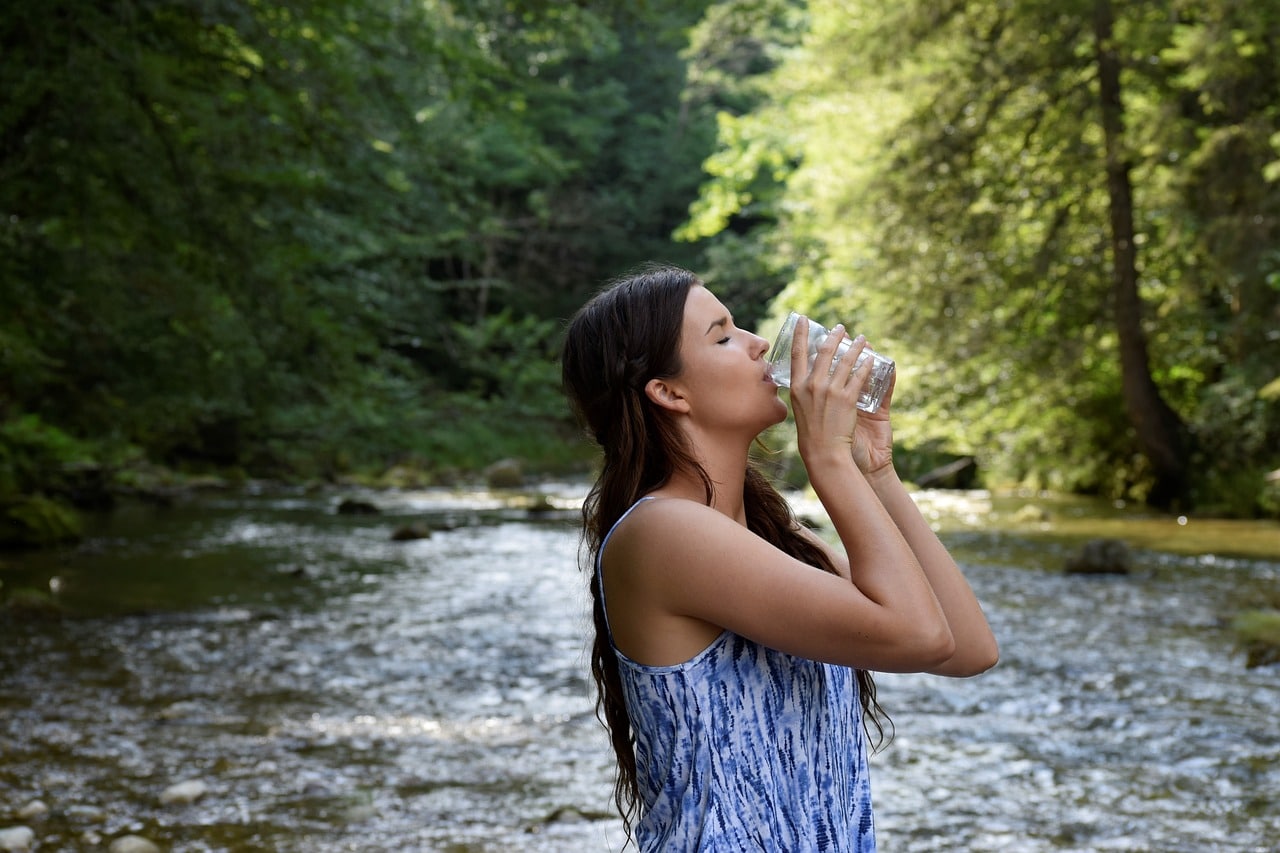It is very vital that we keep the water balance in our bodies at roughly 70 percent because if we do not, we will become dehydrated if we do not do this.
Dehydration will soon set in if we do not drink water as frequently as we should, and this can lead to a whole host of problems such as heart problems, kidney problems, fatigue, headaches, constipation, kidney problems, and more. When we do not drink water as frequently as we should, dehydration will soon set in.
This is of even greater significance if one lives in a warm climate or is engaged in activities such as working, exercising, or playing outside when the temperature is high. Even while we may play in the water to cool off and wear hats to reduce the amount of clothing we wear in order to deal with the heat, neither of these things is sufficient to protect us from heat stroke and dehydration.
In order to prevent heat stroke and make sure that the body stays properly hydrated at all times, drinking water is an essential component.
What is Heatstroke?
Heatstroke is a condition that can be life-threatening can occur when an individual’s core body temperature increases to an unsafe level because they failed to drink sufficient amounts of water on a regular basis. A person might suffer from heatstroke in a variety of settings, including nightclubs, raves, and even festivals, as long as they are engaging in strenuous activity and forgetting to drink water. Being outside in the scorching sun is one of the most common causes of heatstroke.
People who have ingested recreational drugs (such as those who are present at a party, club, or music festival) are at an increased risk of suffering from heatstroke because they are more likely to ignore the warning signs because they are feeling so wonderful as a result of the drugs.
Children who spend the most of their time playing outside are another group of people who are likely to be at risk for developing heatstroke. These people include construction workers, traffic police, lifeguards, and those who have no choice but to labour in the heat of the sun. If they don’t take many sips of water before, during, and after their workout, athletes, and especially those who participate in long-distance running or cycling events, have an increased risk of being dehydrated and suffering from heat stroke.
Acquaint yourself with the signs of heatstroke
It is critical that you are familiar with the signs and symptoms of heat stroke so that if you experience any of them, you will be able to take appropriate action in a timely manner:
- Experiencing a loss of consciousness or fainting.
- Fatigue, headaches, giddiness, dizziness,
- You can be experiencing cramps in your arms, legs, or back.
- A nauseated stomach or puking
- Not perspiring when you really ought to be
- An unexpected onset of fatigue, irritation, and/or confusion
If you detect any of the symptoms listed above, you should immediately stop working out or exercising, get out of the sun, and go somewhere cold. Take some water, ideally water that’s been cold, as soon as you can. Take it easy and sip the water rather than gulping it down.
Staying hydrated is essential for preventing heatstroke
Even if you have to spend the entire day working outside in the scorching sun, it is possible to avoid heatstroke and protect yourself by following a few basic precautions. Heatstroke is a serious condition that, in extreme cases, can even be fatal.
- Consume close to a litre of water before engaging in any form of physical activity to ensure that you get off to a hydrated start. Maintain your water intake throughout the activity and immediately after it as well.
- A decent rule of thumb is to consume approximately 500 millilitres (ml) of water each hour.
- If you are experiencing extreme heat, try placing a cool, damp towel on the back of your neck.
- Mix eight tablespoons of sugar and half a teaspoon of salt into one litre of water, and then sip on this mixture on a regular basis if you find that you are still quite thirsty despite the fact that you are drinking water on a regular basis.
- When performing labour that requires physical exertion, it is important to take frequent breaks for the purpose of relaxing and getting out of the scorching sun.
Keep in mind that drinking water first thing in the morning and at regular intervals throughout the day is the best approach to prevent developing heatstroke and other symptoms associated with it. If you do not like the taste of water, you can improve the flavour of your drinking water by adding lemon juice or fruit to it. This will make the water taste a little bit better. Consuming water from water coolers will also assist improve the taste of the water because water from water coolers has typically been filtered, and filtered water smells and tastes better than unfiltered water.






